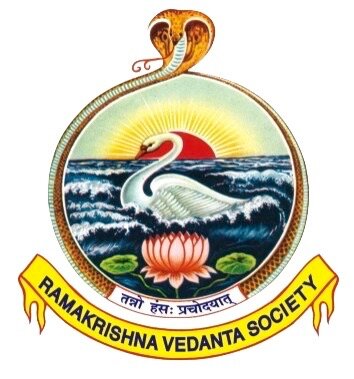“Denial of the will to live, knowledge, and samesightedness is the trinity of liberation. Freedom is the goal of the universe.”
We saw last time that the trinity of bondage is ignorance, desire and inequality.
The trinity of bondage is to be replaced by the trinity of freedom, namely, knowledge, denial of the will to live, and samesightedness.
We have seen also that it is ignorance which initiates the chain reaction that culminates in the painful, vicious circle of birth and death and all the mess that occurs in-between. The only way to overcome ignorance is knowledge. Predictably, knowledge is the first entity in the trinity of freedom.
What knowledge are we talking about? Swami Vivekananda said that we are not traveling “from error to truth, but from truth to truth, … from lower truth to higher truth” (CW, 4. 147). It is helpful to begin with the “lower truth” and work our way upward toward the “higher truth.”
The lower truth is who we are at present: mortal, vulnerable beings, ignorant not only of our distant past but even of our immediate future. We need both the knowledge of who we are at present and also the insight to realize that it is not who we really are. Our current knowledge of the self, our present “I” represented by the ego, is at best a “lower self” or, as Sri Ramakrishna liked to call it, the “unripe-I.”
If we never let go of the insight that our presently experienced self is the “lower” self, it is possible to awaken the “higher self,” or to get to know who we really are, through guidance from a qualified teacher (guru) and a determined all-out effort to do whatever it takes to get that saving knowledge. The knowledge that “saves” us is the knowledge that wakes us up from the dream-induced false identity of a mortal, imperfect human being.
We wake up and discover our true identity of the free, immortal and divine Being. The more the “unripe-I” is shed, the more the “ripe-I” begins to take its place. When knowledge reaches its culmination, the “I” drops off and the ripeness alone remains, manifesting the two other entities in the trinity of freedom: denial of the will to live, and samesightedness.
The will to live is a direct, if usually instinctive, response to the fear of death. Ignorance makes us cling to life with the hope of keeping death as far away as possible. One of the first fruits of knowledge is the realization that life is inseparable from death. We cannot understand life without understanding death, and vice versa. Life without death is impossible. The phrase “eternal life” becomes meaningful only if and when “life” is assigned a meaning different from life as an antipode of death.
Denial of the will to live implies denial of even the possibility of death, since both life and death belong to the body. The body is part of the “unripe I” which has vanished. With the clarity of vision bestowed by the ripeness of knowledge, we are able to rise beyond both life and death. What lies beyond them is Being or Existence itself. It is this that religious texts refer to as “eternal life.”
Another fruit of knowledge is the perception of sameness. We are same only at the spiritual level. Physically and psychologically we are different, because “name” and “form” divide—or at least seem to divide—the wholeness. As water, the ocean is one, even continuous, yet we divide it with names such as the Pacific or the Atlantic. The wholeness of the ocean is affected also when we recognize the forms of its waves. Yet it is easy to see that these divisions based on name and form are superficial. They may serve a useful purpose, but basically such divisions are more illusory than real.
It may be possible, even if superficially, to create divisions in the material world. At the level of spirit, though, division are impossible, because—as pure consciousness—spirit is immutable. It is also one and infinite. It is knowledge that endows the person with clarity of vision which is not hampered by names and forms. Names and forms don’t disappear, but they no longer matter when we see the deeper reality that undergirds them. A spiritually free person sees through all names and forms, and encounters the undivided spirit everywhere. Samesightedness is the natural result.
In his talks on Jnana Yoga, Swamiji raises these questions: “What is this universe? From what does it arise? Into what does it go?” And this is his answer: “In freedom it arises, in freedom it rests, and into freedom it melts away.” Swamiji’s words on the trinity of bondage and the trinity of freedom are useful springboards for our own personal reflections on the subject.

